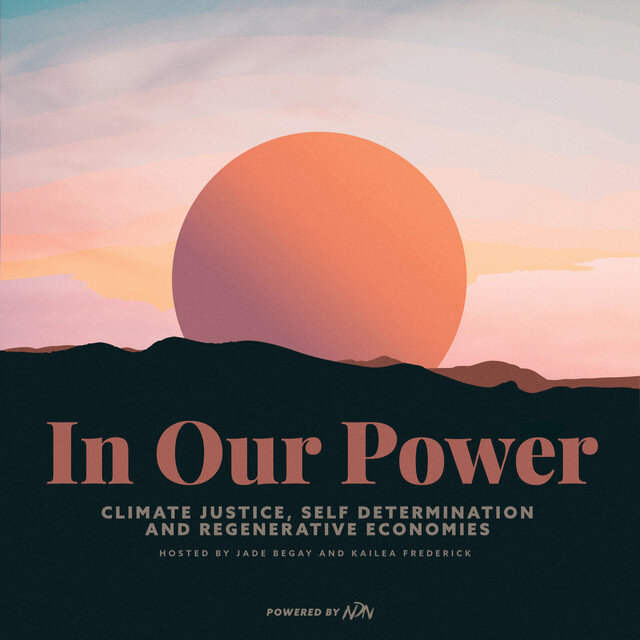Reintroducing: Land, Water, and Dignity Contributor, Jade Begay
A reintroduction to Land, Water, and Dignity Contributor, Jade Begay
Interview by Kelly Hubbell-Hinton
Tell us about who you are and what are some of your favorite current projects?
My name is Jade Begay. I am Winter clan from Tesuque Pueblo and born for Naakai Diné, Tachii'nii clans on my fathers side. I am the Climate Justice Campaign Director at NDN Collective and serve on the boards of Native Conservancy and Amazon Watch. As of 2021, I also serve on the White House Environmental Justice Advisory Council.
As far as my favorite current projects; Within the climate justice campaign at NDN Collective, I am co-producing a podcast with my team titled, In Our Power: Self Determination and Regenerative Economies. This podcast highlights Indigneous led solutions at the forefront of the climate crisis and explores how Indigenous peoples define climate justice.
What inspires you and keeps you in this work?
The belief that the best times are ahead of us.
Who are some of your mentors?
So many mentors! And truly honored to have learned and continue to learn from the people I am so privileged to call mentors, which include people like Kim Smith, who is a founder of IGG. Eriel Deranger of Indigenous Climate Action. Melina Lubicon Massimo of Sacred Solar. Wahleah Johns who founded Natives Renewables, and the list goes on.
Currently, I am here in Cordova, Alaska, working with another mentor, Dune Lankard, who’s a founder of Native Conservancy. Here we are mapping out projects and solutions for food sovereignty, climate justice and #OceanBack.
What are some actions community members can take for climate justice?
Devote time and energy to learning place based skills and climate emergency skills. The impacts of climate change like drought, heat waves, and fires, are all going to become more and more severe and we need to be able to navigate a crisis or emergency when they impact our communities and families. We need to be skilled and prepared to survive things like wildfires and flooding, this means learning how to evacuate in case of fire or flood, learning how to swim incase of flood, knowing how to protect your home in case of fire or what your emergency suitcase needs to hold in case a wildfire or tsunami hits your community.
What’s more is that you must work with your community, your neighbors on what your plan is, so chaos does not erupt and prevent everyone from reaching safety. We are at the point in the climate crisis where this type of thinking, organizing and coordination is needed.
In addition to this type of preparation, we need everyone engaged in climate and infrastructure policy. Next year 2022, is a mid term year and there will be many decisions made on policies and elected leaders. Our Indigenous communities, whether we approve of these systems or not, need to be aware of the decisions and decision makers being voted on, as the impacts of climate change affect our people the most. We need to be aware and engaged, so that we can fight for and demand what our people truly deserve, which is health, safety, justice, self determination and investment as the world’s best climate leaders.
What do you do for fun?
Wander in forests and deserts looking for hot springs, skiing, mountain biking, and working with horses. Also the occasional netflix binge while eating pizza.


